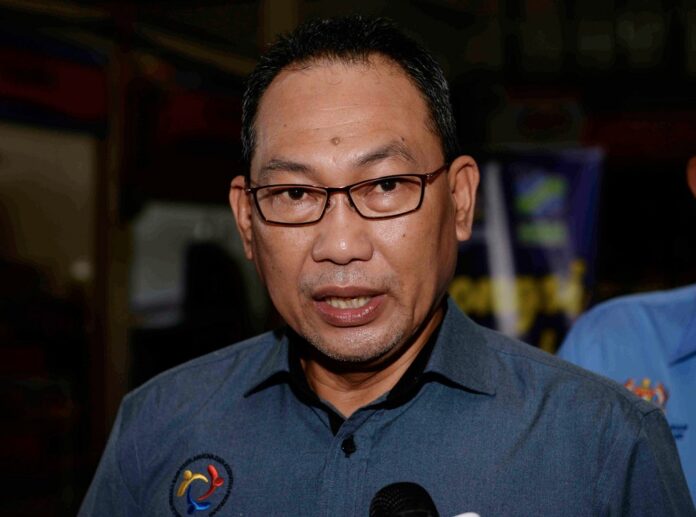Deputy Human Resources Minister Datuk Awang Hashim speaks to the media during the Pre-Syawal Sales Ceremony at the Pasar Tani Kekal Guar Chempedak in Yan May 8, 2021. — Bernama pic
ALOR SETAR, June 27 — The Human Resource Ministry has received 3,737 complaints on various labour issues, especially those related to Working from Home (BDR) through the ‘Working For Workers’ (WFW) application, which was launched last May.
Its deputy minister, Datuk Awang Hashim, said of the total, 1,769 complaints involved cases of employers not allowing their employees to WFH during implementation of the movement control order (MCO).
“The highest complaint received through WFW is on employers forcing their employees to come to work in the office even though it is against the standard operating procedures (SOP) set by the government.
“Employers are supposed to only allow 60 per cent of their employees to come to work in the office (for the permitted sectors), while the rest to BDR. However, it is found that there are employers that want 100 per cent of their employees to come to work in the office,” he told reporters here today.
Earlier, Awang led an operation to ensure compliance of a factory which produces health food, personal care and cosmetics products in Jitra, here, to the Workers’ Minimum Standards of Housing and Amenities Act.
The operation was conducted with the cooperation of the relevant agencies, including the police, National Security Council (NSC) and the Health Ministry.
Meanwhile, Awang said the ministry, through the Department of Manpower (JTK) had conducted checks on 19,981 employers, involving 108,877 places of accommodation nationwide.
“As of today, a total of 757 investigation papers, involving various offences, have been opened under the Workers’ Minimum Standards of Housing and Amenities Act 1990 (Amended 2019) and 125 of the cases have been taken to court.
“Most of the cases is for not providing basic amenities to employees. To that effect, we will introduce a law to make it compulsory for employers to provide centralised accommodation to their workers so that it is easy for us to monitor and take action,” he added. — Bernama


